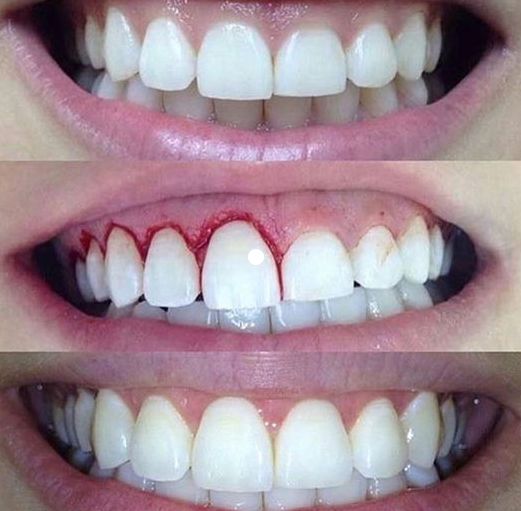Periodontology
- Home
- Periodontology
Periodontology: Understanding the Importance of Gum Health
Periodontology is a specialized branch of dentistry that focuses on the prevention, diagnosis, and treatment of diseases that affect the supporting structures of the teeth, particularly the gums. Periodontal diseases are very common and can have a significant impact on oral health if left untreated. In this article, we will explore the importance of periodontology and shed light on the various aspects of gum health.
Understanding Periodontal Diseases:
Periodontal diseases are characterized by inflammation and infection of the gums, which can eventually lead to damage to the soft tissues and bone that support the teeth. The primary cause of periodontal diseases is the accumulation of plaque, a sticky film of bacteria that forms on the teeth. If not removed through regular brushing and flossing, plaque can harden into tartar, which can only be removed by a dental professional. The bacteria in plaque and tartar release toxins that irritate the gums, leading to inflammation and the breakdown of the supporting structures.

Types of Periodontal Diseases:
1. Gingivitis: Gingivitis is the mildest form of periodontal disease and is characterized by red, swollen, and bleeding gums. It is usually reversible with proper oral hygiene and professional dental care.
2. Periodontitis: If gingivitis is left untreated, it can progress into periodontitis, a more severe form of gum disease. Periodontitis involves the destruction of the gum tissue and bone, leading to tooth loss if not addressed promptly.
Common Symptoms of Periodontal Diseases:
– Red, swollen, or tender gums
– Bleeding gums, especially during brushing or flossing
– Receding gum line
– Persistent bad breath
– Loose or shifting teeth
– Changes in the way teeth fit together when biting
The Importance of Periodontal Health:
Maintaining healthy gums is crucial for overall oral health and general well-being. Here are some key reasons why periodontal health matters:
1. Preventing Tooth Loss: Periodontal diseases are the leading cause of tooth loss in adults. By taking care of your gums, you can preserve the stability of the supporting structures and prevent tooth loss.
2. Aesthetic Benefits: Healthy gums play a vital role in maintaining an attractive smile. Gum diseases can cause gum recession, leading to an uneven gum line and exposing the roots of the teeth. Healthy gums contribute to a beautiful, symmetrical smile.
3. Systemic Health: Emerging research has found a link between periodontal
Oral Hygiene Instructions
Proper oral hygiene is essential for maintaining healthy teeth and gums. Here are some important instructions to follow for maintaining good oral hygiene:
1. Brush your teeth twice a day: Use a soft-bristled toothbrush and fluoride toothpaste to brush your teeth thoroughly for at least two minutes. Brushing in the morning and before bed helps remove plaque and prevent tooth decay.
2. Floss daily: Flossing is crucial for removing plaque and food particles from between your teeth and along the gumline. Use a gentle sawing motion and curve the floss around each tooth to ensure thorough cleaning.
3. Use mouthwash: Rinse your mouth with an antimicrobial mouthwash after brushing and flossing. This helps kill bacteria and freshens your breath. Choose a mouthwash that contains fluoride for added protection against cavities.
4. Clean your tongue: Use a tongue scraper or gently brush your tongue to remove bacteria and debris that can cause bad breath.
5. Replace your toothbrush regularly: Replace your toothbrush or toothbrush head every three to four months or sooner if the bristles become frayed. A worn-out toothbrush is less effective at cleaning your teeth.
6. Maintain a balanced diet: Limit your consumption of sugary and acidic foods and drinks, as they can contribute to tooth decay. Instead, opt for a balanced diet rich in fruits, vegetables, whole grains, and lean proteins.
7. Drink plenty of water: Water helps rinse away food particles and bacteria and keeps your mouth hydrated. It’s particularly important to drink water after meals when brushing may not be immediately possible.
8. Avoid tobacco products: Smoking and using other tobacco products increase the risk of oral cancer, gum disease, and tooth loss. Quitting tobacco is beneficial for your oral health and overall well-being.
9. Visit your dentist regularly: Schedule regular dental check-ups and professional cleanings to maintain good oral health. Your dentist can detect any dental issues early on and provide necessary treatments.
10. Be aware of oral health changes: Pay attention to any changes in your teeth, gums, or mouth, such as bleeding gums, tooth sensitivity, or persistent bad breath. If you notice any abnormalities or have concerns, consult your dentist as soon as possible.
Remember, consistent oral hygiene practices are key to preventing dental problems and maintaining a healthy smile.